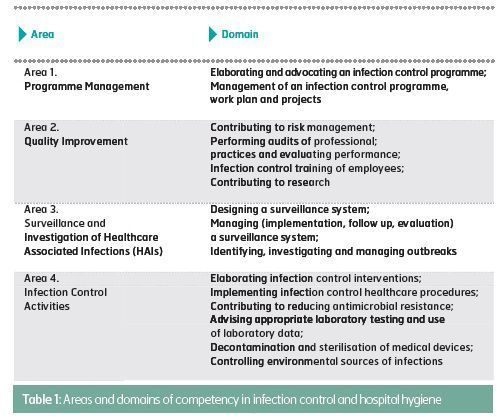HealthManagement, Volume 15, Issue 2/2013
The The European Centre for Disease Prevention and Control (ECDC) has published a technical report on infection control and hospital hygiene. The intent of ECDC is to propose a comprehensive list of core competencies that should be adopted by infection control and hospital hygiene professionals across Europe.
The use of these core competencies would support:
- Standardisation of the competencies for infection control and hospital hygiene professionals in Europe;
- Design and implementation of training courses according to different national contexts while facilitating the mutual recognition of competencies across EU Member States;
- Self-assessment of performance for infection control and hospital hygiene professionals and planning of their professional development;
- Identification of the needs of healthcare organisations with regard to professional staff; and
- Evaluation of the performance of infection control and hospital hygiene professionals.
The core competencies listed in the document are defined for infection control and hospital hygiene professionals, with the profile of a medical doctor, nurse or caregiver. The term ‘core’ indicates that the competencies should be a minimum pre-requisite, common to all professionals in this field.

In the list, core competencies are classified in areas and domains (see Table 1 For details) and are separated into two levels:
the introductory level and the expert level. The levels are defined as follows:
- “Introductory level (junior specialist): newly appointed infection control and hospital hygiene staff member with little or no previous experience.
- Expert level (senior specialist): infection control and hospital hygiene professionals who are confident and experienced; who use reasoning, critical thinking, reflection and analysis to inform his/her assessment and decision-making; and are able to develop and implement new solutions to problems.”
The ECDC believes that the list of core competencies used as a reference could increase the comparability of job descriptions and facilitate the mobility of professionals throughout Europe. The core competencies could be used as a basis for certain human resource tools, such as annual performance reviews or personal development plans, by selecting four to six competencies as goals for infection control and hospital hygiene professionals.
Potential users of the list are public health institutes, universities, hospitals and other healthcare organisations, training programmes, professionals and trainees.
To read the report in full, please visit: www.ecdc.europa.eu


![Tuberculosis Diagnostics: The Promise of [18F]FDT PET Imaging Tuberculosis Diagnostics: The Promise of [18F]FDT PET Imaging](https://res.cloudinary.com/healthmanagement-org/image/upload/c_thumb,f_auto,fl_lossy,h_184,q_90,w_500/v1721132076/cw/00127782_cw_image_wi_88cc5f34b1423cec414436d2748b40ce.webp)


